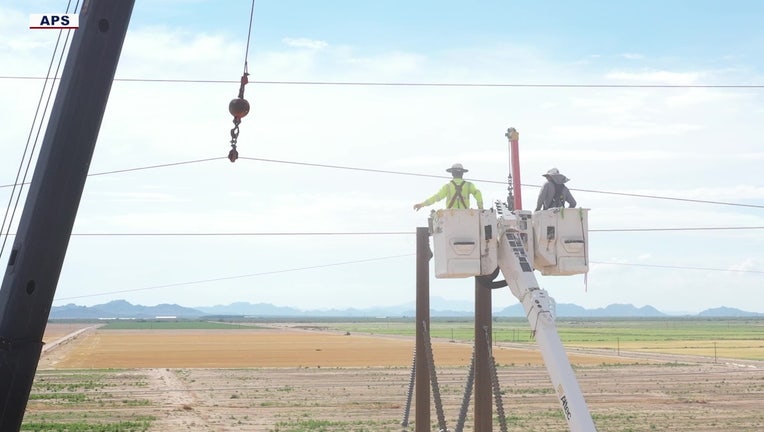APS prepares for potential of record-breaking energy demand again

APS is preparing for the potential of another record output of energy from customers this summer.
PHOENIX - Last year, APS customers broke the all-time peak energy demand record at 8,162 megawatts.
This year is expected to be no different and the company is preparing to have 8,400 megawatts available during peak times this year.
The company serves 1.4 million customers in Arizona.
"We've never had to ask the customers not to use their air conditioning," Distribution Operation Center Manager Wesley Horne, said.
RELATED: Big changes are coming to air conditioning units in 2025, industry expert says
The Distribution Operations Center is responsible for monitoring the grid around the clock to ensure it's ready for the summer.
"We have teams across the state throughout 11 of the 15 counties here in Arizona," Horne said.
"We're able to operate it remotely with what we call scattered devices or remotely controlled devices, where we can reroute power if necessary during planned work or emergent outages."
The power grid was especially tested during last year's record 55 days of 110 degrees or higher.
So how is it so reliable each summer?
"We procure resources well in advance of summer so that we have sufficient resources to cover our customers' expected load, plus reserves or backup generation," APS Director of Power Supply Services, Tim Rusert said.
APS's approach to reliability means years in advance planning.
"We have an integrated planning model here where we look, you know, 15 or 20 years into the future. We predict and identify how we're going to serve our customers' needs out into time," Rusert said.
Watch Fox 10 Phoenix live:
Last year, APS customers not only broke the all-time peak energy demand, they also exceeded the prior 2020 record on 18 different days.
To stay prepared for another hot summer and unforeseen events, APS keeps a backup power supply.
"We have resources that serve a variety of energy needs. So, from a nuclear plant at Palo Verde that provides dependable 24/7 power, to solar that only ramps on during the day, to energy storage that we've moved some of that solar energy to the evening peak hours to help cover peak load," he said.

